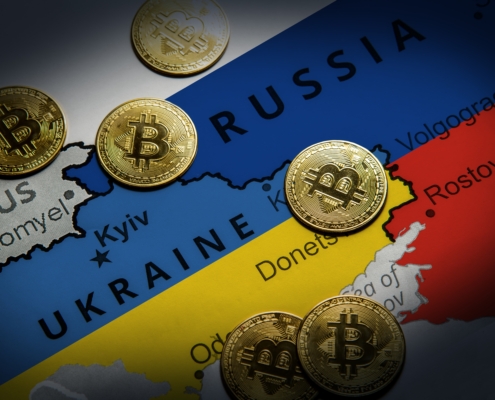
Lessons from the Flight Deck
Automation and artificial intelligence, including machine learning, have the potential to provide significant benefits within financial services – however they must be implemented responsibly. In this article, we draw on the use of automation in other sectors such as aviation, review key global regulations, and examine regulatory enforcement actions, to identify best practices for responsible use of AI in compliance.

Adapting to Digital Assets Risks
In our recent webinar, "Mastering Compliance in Digital Assets through Multi-Tiered Defense Strategies," industry leaders examined the intricacies of digital asset compliance. Featuring a panel of industry experts including Andrew Rosenberg, Elizabeth Severinovskaya, and Catherine Woods, this blog post summarizes the key insights shared during the event.

The Convergence of Sanctions & AML
The convergence of sanctions and anti-money laundering efforts has significantly accelerated since Russia’s full-scale invasion of Ukraine in February 2022. FINTRAC in June 2024 released a special bulletin focusing on financial activity associated with suspected sanctions evasion. The report highlighted shared methodologies and insights to help compliance teams collaborate on best practices.

Three Lines of Defense: Case Study
The “three lines of defense” model is a widely recognized approach for effectively managing financial crime and regulatory risk. But how does it work in practice? This article explores how the three lines of defense applies using client due diligence as a real-life case study.

Crypto Under the Microscope
In the fast-evolving digital assets market, compliance is not just a regulatory requirement—it's a strategic imperative. From Binance's multi-billion-dollar settlement to the dramatic collapse of FTX, recent enforcement actions have sent shockwaves through the industry, underscoring the critical need for a robust compliance system.

Three Lines of Defense
The “three lines of defense” is a well-established model for implementing an organizational structure to effectively manage financial crime risk and regulatory compliance. Explore the three lines of defense, their responsibilities and the advantages of the three line model in this article.

Embracing Emerging Technologies through Capability Development
Risk is perceived to be higher when a subject area is unfamiliar, which is particularly likely for emerging technologies and products. One solution is to develop the capability of staff through training and experience, where Chief Compliance Officers can utilize partners to support upskilling and augment internal capability where required. Digital assets provide a good case study: detailed knowledge within financial institution compliance and business teams to manage risks while enabling business growth.

OFAC’s Compliance Guidance in Action
The Treasury Department’s Office of Foreign Assets Control (OFAC) five years ago published its Framework for OFAC Compliance Commitments. This guidance remains the most comprehensive articulation of OFAC’s compliance expectations to date. Although it notably stopped short of mandating a sanctions compliance program (SCP), recent enforcement actions demonstrate the implications of not having an SCP in place.

Corruption Kills
Construction projects are especially vulnerable to corruption because of their complexity, high price tags, and the number of intermediaries and other parties involved. Corruption in the construction sector does not merely result in financial losses, environmental destruction, and inequality, but it can also result in loss of life.

Russian Use of Crypto for Sanctions Evasion on the Rise
Experts agree there isn't enough liquidity in the virtual assets space to enable largescale sanctions evasion by Moscow, but sanctioned individuals and entities have used virtual currencies—most notably Tether—to access the global financial system and pay for restricted goods and technologies. Explore recent designations, how cryptocurrencies and other virtual assets are being leveraged to facilitate evasion as well as risk mitigation strategies for financial institutions in our latest article.
